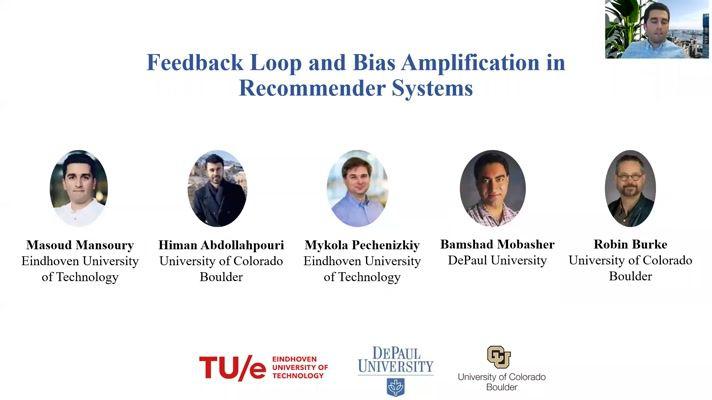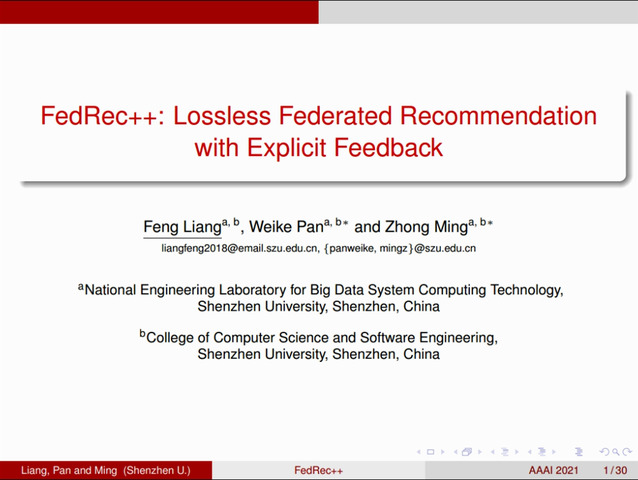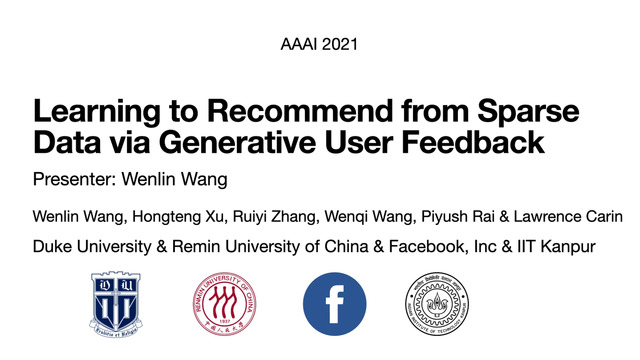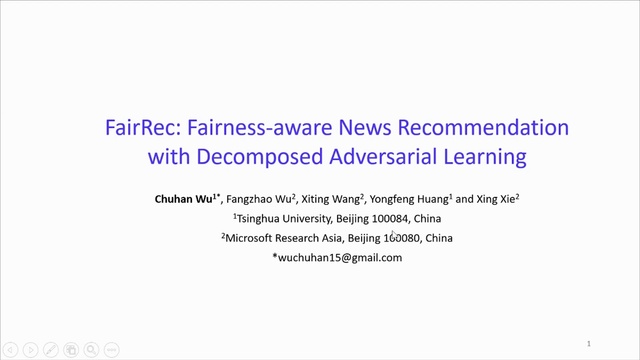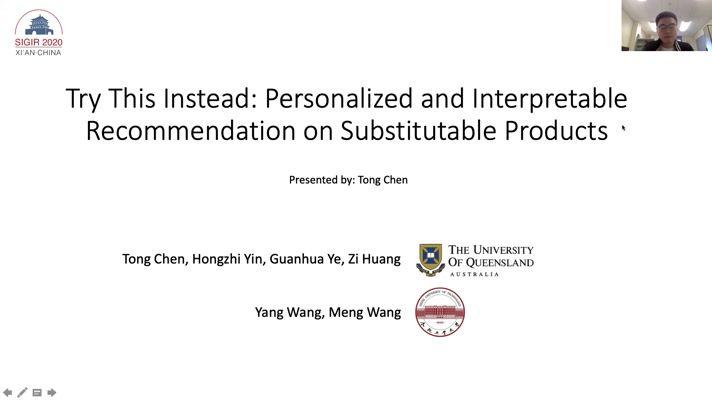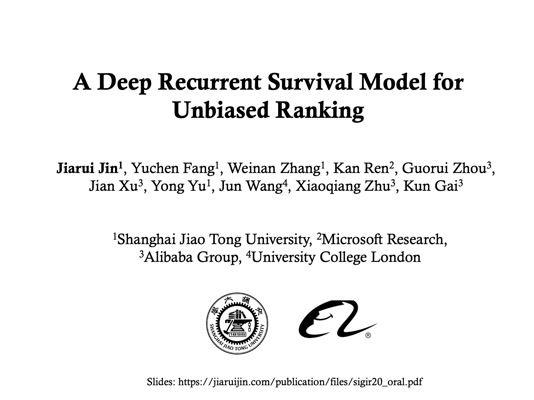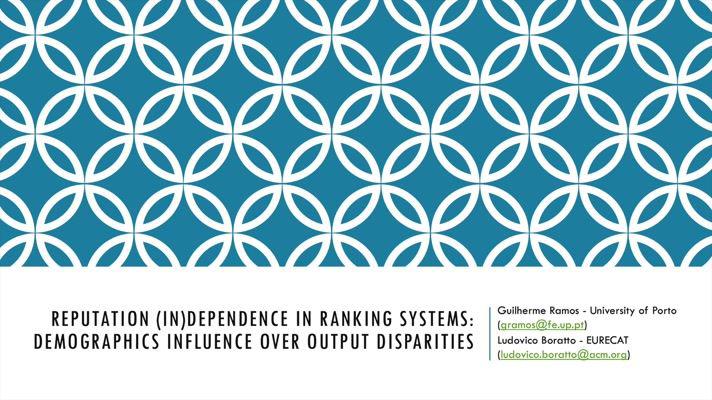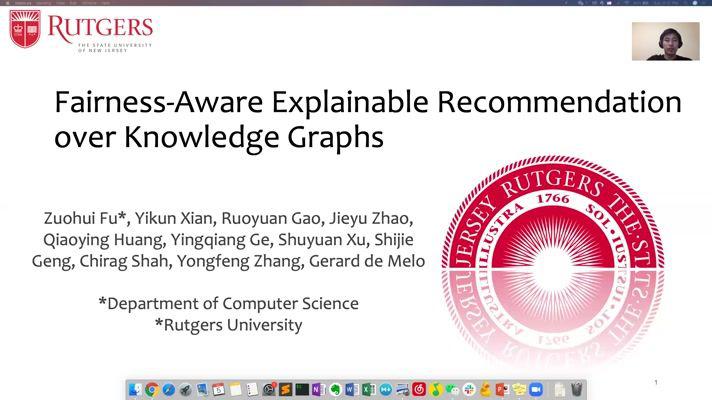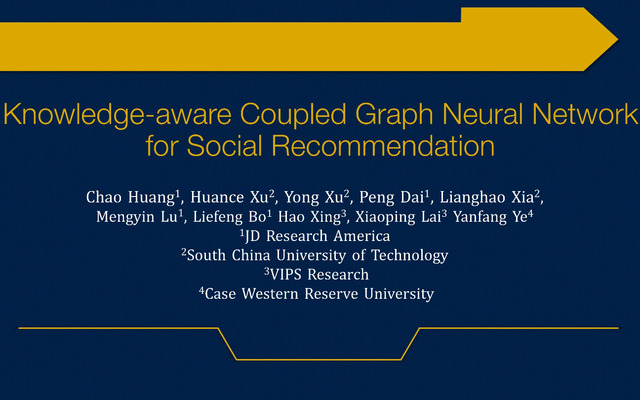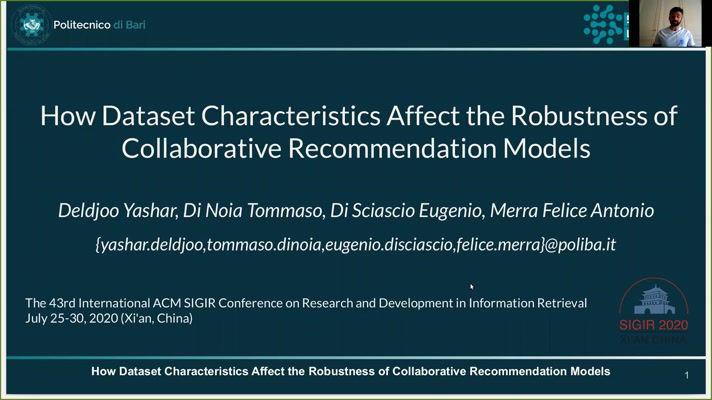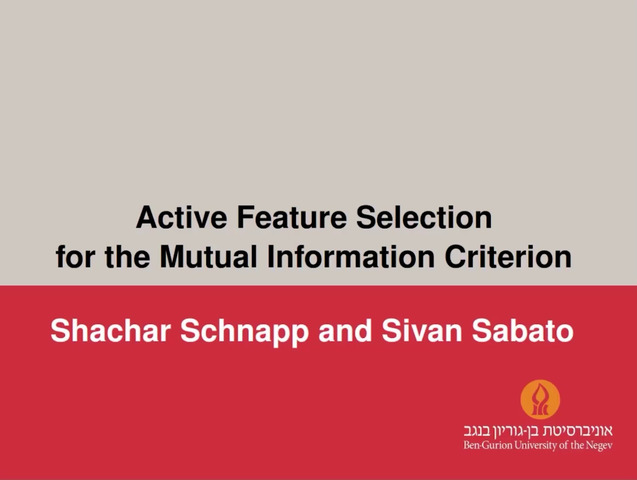Abstract:
Recommender systems, like other tools that make use of machine learning, are known to create or increase certain biases. Earlier work has already unveiled different performance of recommender systems for different user groups, depending on gender, age, country, and consumption behavior. In this work, we study user bias in terms of another aspect, i.e., users’ personality. We investigate to which extent state-of-the-art recommendation algorithms yield different accuracy scores depending on the users’ personality traits. We focus on the music domain and create a dataset of Twitter users’ music consumption behavior and personality traits, measuring the latter in terms of the OCEAN model. Investigating recall@K and NDCG@K of the recommendation algorithms SLIM, embarrassingly shallow autoencoders for sparse data (EASE), and variational autoencoders for collaborative filtering (Mult-VAE) on this dataset, we find several significant differences in performance between user groups scoring high vs. groups scoring low on several personality traits.




